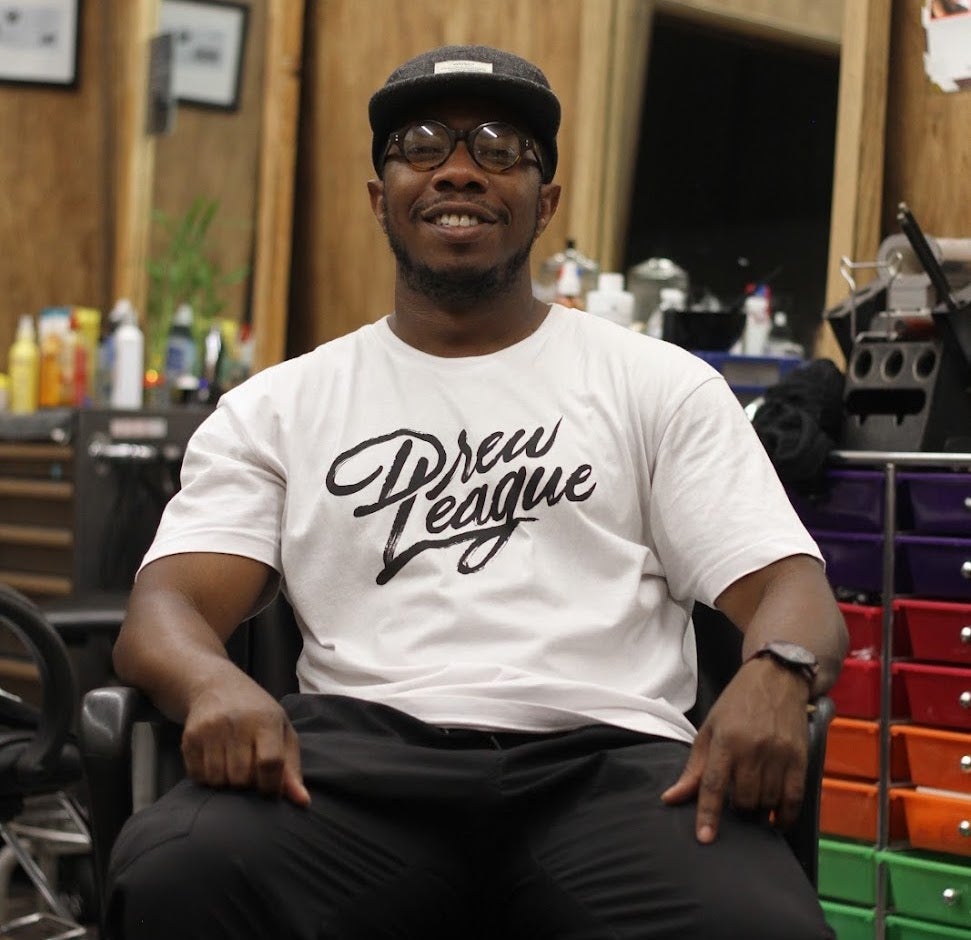
Imagine learning about how to have safe sex while getting a haircut.
That’s what happened one day about six years ago when Jahmil Lacey was in the barbershop and his beloved barber, Mr. Harold, taught a few young clients about proper sex practices.
“I think I speak for many Black men when I say the barbershop is really a safe space for us,” he said. “Some young teen guys came in while were we discussing relationships, and after Mr. Harold asked them a few key questions they couldn’t answer, he did a demonstration in the shop in front of, like, 15 men with a latex glove on what a dental dam was and how to correctly use a condom. And everyone was paying attention. That was when I knew I had an untapped resource there.”
Lacey, who is an urban planner and third-year medical student, has a deep understanding of how critical it is to reach Black men where they are and encourage health advocacy. After witnessing that Mr. Harold inadvertently tackle a major barrier (affective sexual education), he decided to lay the groundwork to formalize what he encountered, thus the idea for TRAPMedicine was born.
“I was intentional in ensuring every aspect of the organization spoke to the target audience,” he said, explaining that while the name is a colloquial term used in the Black community, it also encapsulates their core mission: Trust, Research, Access, and Prevention.
The Morehouse grad said he crafted his work to highlight the pervasive inequities Black men have always men faced, inspiring his career in medicine. Although Mr. Harold’s demonstration inspired the idea for TRAPMedicine, their 2016 study legitimized it.
The Barbershop Wellness Study gathered responses from one-hundred fifty (150) Black men between the ages of 18-65 where it was found that 70% of respondents would utilize preventive health services if they were available at the barbershop.
Now, nearly seven years later, TRAPMedicine’s impact is being recognized in a big way.
Lacey was selected as one of Johnson & Johnson’s Health Equity Innovation Challenge awardees as an innovator working to drive health equity for BIPOC communities. That means that TRAPMedicine received seed funding from Johnson and Johnson from a pool of more than $1 million, and access to other key resources to help advance their mission.
“We’ve been able to amass different types of funding, but I think this is different,” said Lacey. “This funding opportunity really allows us to have access to some of the resources that Johnson and Johnson provide. As a global corporation, we’ll have access to networks this corporation pipelines that we could really use as a community-based venture. We’re just getting started.”
